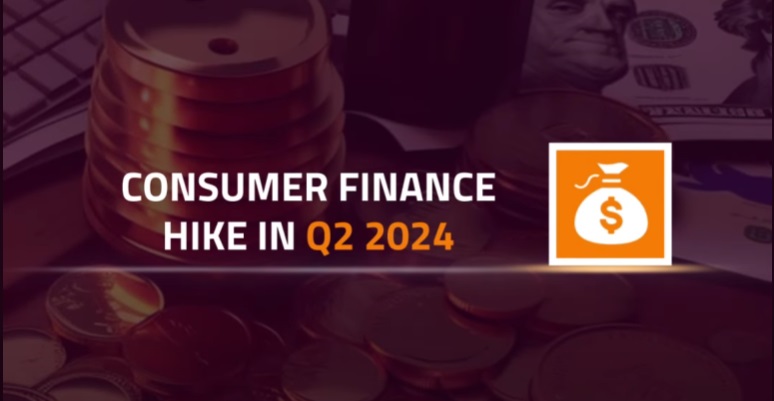Egypt's Bold Actions: Taming Inflation, Stabilizing Markets
Updated 3/12/2024 8:00:00 AM
The Egyptian economy is navigating a precarious tightrope, with soaring inflation squeezing household budgets and threatening economic stability.
To combat this challenge, the Central Bank of Egypt (CBE) recently implemented a series of bold monetary measures.
While these measures hold promise for long-term improvement, they also represent potential challenges in the short term.
Combating Inflation and Stabilizing Exchange Market
The CBE raised key interest rates significantly by 600 basis points (bps), according to the CBE.
Additionally, the CBE announced a unified exchange rate, allowing it to be determined by market forces.
Commenting on this, President Abdel Fattah El Sisi stated that it is possible for Egypt to switch to a flexible exchange rate regime with the support of Ras El-Hekma investment from the UAE and the International Monetary Fund (IMF) financing program.
These measures aim to combat inflation, despite recent declines. They are still projected to remain high and significantly above the CBE's target.
Dina Samir ElWakkad, Instructor of Economics and Economic Analyst, tells Arab Finance, "Raising interest rates can potentially curb inflation.”
“When interest rates increase, borrowing becomes more expensive, which reduces consumer spending and business investment,” ElWakkad explains.
“This decrease in spending and investment tends to lower aggregate demand in the economy, leading to a decrease in the overall level of inflationary pressure," she adds.
As a step to support local exchange market stability, the CBE directed local banks to lift limits on foreign currency spending for credit cards.
In this regard, Chairman of the Commercial International Bank (CIB) Hisham Ezz Al-Arab posted on “X” platform that soon the limits on credit card transactions in foreign currency will be reopened for use abroad.
Bolstering Foreign Currency Reserves
In a significant development, on March 6th, Egypt and the IMF discussed tripling the IMF support for the country.
This increase, awaiting approval by the IMF's Executive Board, aims to boost IMF assistance to Egypt from $3 billion to a substantial $8 billion.
ElWakkad emphasizes that “the IMF loan marks a vital financial support to the Egyptian government, addressing macroeconomic imbalances and implementing structural reforms.”
“These reforms can improve the overall economic performance and investor confidence in Egypt, leading to increased foreign investment inflows,” she says.
Moreover, ElWakked notes, “The influx of foreign currency resulting from increased foreign investment can contribute to stabilizing the Egyptian Pound.”
Egypt has received the first tranche under the $35 billion Ras El-Hekma deal with the UAE.
This infusion of funds increased the total secured from the project to $15 billion within a mere seven days. This injection serves to revitalize the Egyptian economy, which is currently grappling with a significant foreign currency shortfall.
ElWakkad also explains that the foreign currency obtained from the project can boost the overall foreign reserves of Egypt, providing a cushion against external shocks and maintaining the stability of the Egyptian Pound.
Additionally, ElWakkad adds, “An increase in foreign exchange reserves can boost market confidence in the currency, attracting more foreign investment and reducing the likelihood of speculative attacks on the EGP.”
Market Reaction
The CBE’s recent decision impacted several economic sectors. The exchange rate of the Egyptian pound depreciated against the US dollar, recording almost EGP 50 per $1.
Also, gold prices saw an upward trajectory, exceeding EGP 3,600 per gram of 24-karat gold, according to the Dahab Masr website.
For his part, Ihab El-Gamal, a PhD holder in Economics and Public Finance and an economic researcher, tells Arab Finance, “Regarding the initial effects of the CBE decisions on gold prices, exchange rate movements have impacted local prices, as the increase in the dollar against the pound and the implementation of a flexible exchange rate system led to a local rise in gold prices.”
“This increase was also driven by a global surge in the price of gold to unprecedented levels,” El-Gamal adds.
Additionally, El-Gamal points out that the prices of commodities have also been impacted as “some prices decreased due to exchange rate unification, leading to pricing based on actual costs.”
“However, the depreciation of the pound also elevated the cost of imported goods and products reliant on imported inputs,” he notes.
Looking Ahead: Challenges vs. Solutions
Looking ahead, the CBE’s decisions need to be monitored to bear fruit. In this term, ElWakkad underscores that “allowing foreign currency transactions on credit cards may potentially lead to inflationary pressures if not managed properly.”
To address these concerns, ElWakkad suggests that “the CBE can implement various measures. For example, it can closely monitor the exchange rate and intervene in the foreign exchange market to stabilize the value of the domestic currency.”
The country can “implement prudential regulations to ensure responsible lending practices and manage any potential risks associated with the use of foreign currency on credit cards,” ElWakkad says.
Meanwhile, El-Gamal notes that the decisions taken recently by the CBE may cause "volatility in the trade sector due to fluctuations in prices of imported goods and products reliant on imported inputs, affecting sectors heavily reliant on imports."
Moreover, they can reduce consumer spending on services and goods, leading to a decrease in demand, which could reduce inflationary pressures.
"In the long term, these decisions may attract foreign investments and increase the competitiveness of exports,” El-Gamal expects.
Additionally, El-Gamal explains that "the CBE may take additional decisions to raise interest rates in the coming months if necessary.”
“The decision to raise interest rates depends on several factors, including inflation. If the inflation rate continues to rise, the Central Bank may raise interest rates to curb inflationary pressures," he elaborates.
The recent measures by the CBE represent a bold attempt to tame inflation and stabilize the Egyptian economy. While the potential benefits of curbing inflation and attracting foreign currency are significant, the road ahead is fraught with challenges.
By Sarah Samir
Related News












